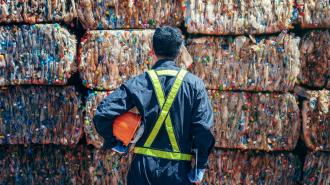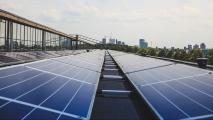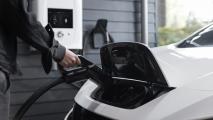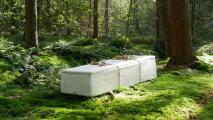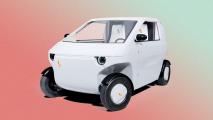A new process that uses plastic-eating bacteria to turn mixed plastic waste into useful chemicals could make plastic recycling more profitable.
These chemicals are more valuable than recycled plastic, and the process could also save money on sorting — but whether it’s enough to make plastic recycling profitable overall still remains to be seen.
The challenge: About 350 million tons of plastic waste is generated every year, and most of it is incinerated, sent to landfills, or littered into the environment. Only 9% is recycled, and a major reason why is that plastic recycling simply isn’t profitable enough.
The new plastic recycling process combines chemical recycling with engineered bacteria.
The mechanical processes typically used to recycle plastic only work for one type at a time, which means all the plastic items sent to recycling centers must undergo an expensive sorting process.
Recycled plastic is also usually low quality and low value, so this sorting cost isn’t offset by the final product — it can often be cheaper to make new plastic than to use the recycled kind.
Alternatives to mechanical recycling that use chemicals or engineered bacteria to break down plastic can produce raw materials that are more valuable, but most of these techniques are still in development and don’t eliminate the need for sorting.
The two-step: A team led by researchers at the National Renewable Energy Laboratory (NREL) has developed a plastic recycling process that combines chemical recycling with engineered bacteria. It works on a mix of three widely used types of plastic, and the end products are commercially valuable chemicals.
The first step is a chemical oxidation process that can break down a mix of polyethylene terephthalate (PET), high-density polyethylene (HDPE), and polystyrene (PS) plastics, which are commonly used to make water bottles, milk jugs, and styrofoam, respectively.
This produces oxygenated compounds that can then be fed to genetically modified soil bacteria for conversion into valuable chemicals. The researchers engineered two strains of the bacteria to produce two different end products: polyhydroxyalkanoates (a form of bioplastic with medical applications) or b-ketoadipate (which can be made into nylon-like materials).
Three widely used types of plastic can undergo the process at once — no need to separate them.
Looking ahead: The new plastic recycling process wouldn’t totally eliminate the need for sorting — the three types of plastic it works on would need to be separated from the four other types of recyclable plastic.
Still, it would presumably cost less to sort a mix of plastic into five groups (with PET, HDPE, and PS lumped together) than to sort it into seven individual streams, and if the end product is more valuable, the whole process could end up being worthwhile financially.
The researchers note in their study that the economics of their two-step plastic recycling process still need to be analyzed, but if the numbers check out, their hybrid approach could help dig us out from under a mountain of plastic waste.
We’d love to hear from you! If you have a comment about this article or if you have a tip for a future Freethink story, please email us at tips@freethink.com.
